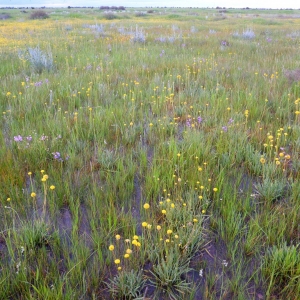The Stream, December 8, 2020: Amid Rising Water Levels, Michigan Shoreline Protection Permits Rise
GLOBAL DAILY WATER NEWS
- Permits for shoreline protections in Michigan triple over the past year.
- A new report calls for water infrastructure reform in the United States.
- Water futures begin trading as water scarcity around the world continue to rise.
- A change in water use rules in Alberta, Canada could allow for more industrial mining.
New documents released in New South Wales, Australia warn that floodplain harvesting could be illegal.
“There are billions of dollars worth of water licenses about to be handed out to irrigators, potentially on the basis of some water take that is likely illegal.” – Justin Field, a member of the New South Wales Legislative Council. Floodplain harvesting in New South Wales is most likely illegal, according to several documents released to the NSW upper house. Floodplain harvesting, or the practice of capturing flood waters moving across plains using levees and dams, is a common practice by irrigators throughout the state. The Guardian reports that new documents, including advice from the crown solicitor, say that under the Water Management Act 2000, the practice is illegal unless farmers have a development consent and a water access license. The release of the documents comes at a time when the government is trying to create a compensable water right for floodplain harvesting. It’s illegality, as proven in the new documents, could strengthen the case of Indigenous groups and environmentalists who are trying to curb the use of the practice.
IN RECENT WATER NEWS
Lisa Finley-DeVille is a member of the Mandan, Hidatsa, and Arikara Nation, known as the Three Affiliated Tribes in Fort Berthold. Just a half mile (800 meters) from her house, in the town of Mandaree, oil and gas are produced by hydraulic fracturing (fracking), an increasingly popular approach to fossil fuel extraction that involves injecting pressurized water, sand, and chemicals into the Earth to release the gas or oil within.
Legal loopholes that exempt fracking from elements of the Safe Drinking Water Act and EPA hazardous waste laws are endangering surrounding communities, and putting drinking water at risk of contamination. Now, national, state, and local grassroots efforts, some led by Finley-DeVille, are calling for change.
In Case You Missed It:
HotSpots H2O: U.N. and Ethiopia Reach Aid Deal After Weeks of Conflict – After thousands of Eritrean refugees were stranded for weeks without food, clean water, and supplies in the northern Ethiopian region of Tigray due to conflict, the Ethiopian government and the United Nations reached a deal to allow unobstructed humanitarian access to areas under federal control last week.
What’s Up With Water – December 7, 2020 – This week’s episode covers the effects of climate change on Brazil’s energy and water security, humanitarian crises in Central America caused by two devastating hurricanes and a twenty year quest by scientists in the U.S. Pacific Northwest to discover what is killing coho salmon in the Puget Sound region.
New Report Highlights Water Infrastructure Reform in the U.S., Calls for More Federal Aid
A new report from Environment America, a U.S.-based coalition of environmental groups, called for a massive investment of time and money from the federal government to reform stormwater runoff and wastewater systems. The report focuses on areas in each of the Environmental Protection Agency’s 10 regions where reform has resulted in cleaner waterways. The report concludes by recommending several policy changes, including ways to prevent stormwater runoff and sewage pollution.
TODAY’S TOP WATER STORIES, TOLD IN NUMBERS
2284 PERMITS
The Michigan Department of Environment, Great Lakes, and Energy (EGLE) said they granted 2,284 shoreline protection permits this year, tripling the number of permits from last year. Michigan Radio reports the spike in permits, which often allow the construction of rock walls as a barricade against encroaching waves, come at a time when water levels on the Great Lakes are reaching all-time highs. Jerrod Sanders, the assistant director for EGLE’s water resources division, said it may be better for the health of the lakeshore to move back those endangered structures, rather than build a wall.
$1.1 BILLION
CME Group Inc. launched contracts linked to the $1.1 billion California spot water market this week. Bloomberg reports that the contracts were first announced in September and are the first of their kind in the U.S. CME said that the futures will help water users manage risk and better align supply and demand. The contracts are meant to serve as both a hedge for California’s biggest water consumers against skyrocketing prices and a scarcity gauge for investors worldwide. They will include quarterly contracts through 2022, each representing roughly 3.26 million gallons (12.34 million liters) of water.
ON THE RADAR
The government in Alberta, Canada has put forth a plan to change water use rules along the eastern slopes of the Rockies as part of a broader plan for economic recovery. Water use in Alberta is currently very restricted due to concerns over supply, but a new proposal could upend those rules. CBC reports that the new plan could allow industrial extraction to increase drastically by allowing coal projects to be bought online. The press secretary for Alberta’s minister of environment and parks, Jess Sinclair, said the government is in the early stages of discussing what she called potential changes.
Jane is a Communications Associate for Circle of Blue. She writes The Stream and has covered domestic and international water issues for Circle of Blue. She is a recent graduate of Grand Valley State University, where she studied Multimedia Journalism and Women, Gender and Sexuality Studies. During her time at Grand Valley, she was the host of the Community Service Learning Center podcast Be the Change. Currently based in Grand Rapids, Michigan, Jane enjoys listening to music, reading and spending time outdoors.







Leave a Reply
Want to join the discussion?Feel free to contribute!